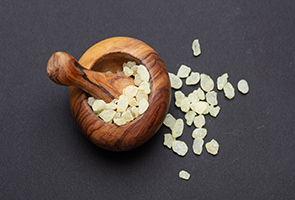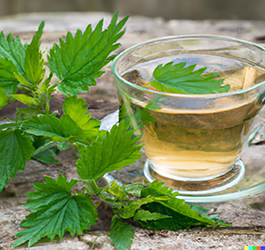Is Mastic Good for Digestion? Uncovering the Potential Benefits of This Ancient Resin for Gastrointestinal Health

Mastic, a resin obtained from the mastic tree (Pistacia lentiscus) in Greece, has been used for centuries in traditional medicine and cuisine for its unique flavor and potential health benefits. One area where mastic has garnered attention is its impact on digestion and gastrointestinal health. In this article, we will delve into the science behind mastic and its potential role in supporting digestive health.
Mastic and Its Antimicrobial Properties
Mastic has been shown to exhibit antimicrobial activity against various bacteria, including Helicobacter pylori (H. pylori), a bacterium commonly associated with gastritis, ulcers, and even stomach cancer. Studies have shown that mastic may help inhibit the growth of H. pylori, potentially reducing the risk of associated gastrointestinal issues and improving overall digestive health.
Supporting Gastrointestinal Health with Mastic's Anti-inflammatory Effects
Inflammation can contribute to various digestive disorders, such as irritable bowel syndrome (IBS), inflammatory bowel disease (IBD), and gastritis. Mastic contains compounds with anti-inflammatory properties, which may help reduce inflammation in the gastrointestinal tract and alleviate symptoms associated with these conditions.
Mastic's Potential Role in Gastroesophageal Reflux Disease (GERD)
Gastroesophageal reflux disease (GERD) is a common digestive disorder characterized by the backward flow of stomach acid into the esophagus, causing heartburn and other symptoms. Some studies have shown that mastic may help protect the esophageal lining from damage caused by stomach acid, potentially providing relief for GERD symptoms. However, more research is needed to confirm these findings and establish the optimal dosage for this purpose.
Mastic as a Digestive Aid
Traditionally, mastic has been used as a digestive aid to relieve symptoms such as bloating, gas, and stomach discomfort. While scientific research on mastic's effectiveness as a digestive aid is limited, its antimicrobial and anti-inflammatory properties may contribute to improved gastrointestinal health and function.
How to Incorporate Mastic into Your Diet
Mastic is available in various forms, including gum, powder, capsules, and essential oil. Mastic gum can be chewed as a natural remedy for digestive issues, while mastic powder can be added to food or beverages. Capsules and essential oils offer alternative ways to incorporate mastic into your daily routine. It is essential to consult with a healthcare professional before using mastic, especially if you have a pre-existing medical condition or are taking medications.
Mastic has shown potential for supporting digestive health due to its antimicrobial and anti-inflammatory properties. While more research is needed to fully understand its effectiveness and optimal dosage, incorporating mastic into your diet may offer many benefits for gastrointestinal health. As always, consult with a healthcare professional before using mastic or any other supplement to ensure safety and suitability for your individual needs.

 de
de el
el










